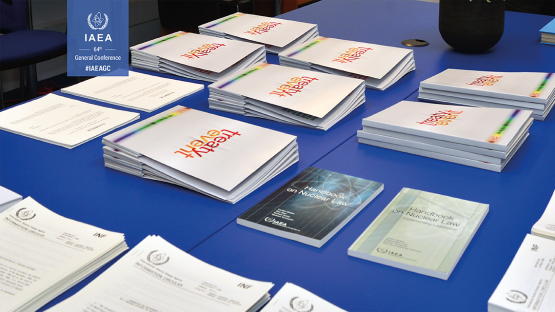Angola's Ambassador to Austria, Croatia and Slovenia and Permanent Representative to International Organizations in Vienna, deposited an instrument of accession to the Convention on Nuclear Safety and an instrument of accession to the Convention on the Physical Protection of Nuclear Material (CPPNM) and of ratification of its Amendment.
"With this event, Angola reinforced its commitment to use nuclear technology for peaceful purposes," said Ambassador Coelho. "It is good for us to take these opportunities that the Agency gives to our country and other State parties."
Mr Grossi said: “Nuclear science and technology has a lot to contribute to Angola’s development. With these instruments in place, you are going to be walking on safer grounds.”
The Convention on Nuclear Safety, adopted in 1994, commits Contracting Parties operating land-based civil nuclear power plants to maintain a high level of safety by establishing fundamental safety principles to which Contracting Parties subscribe. It obliges Parties to submit reports on the implementation of their obligations for “peer review” at meetings that are normally held at IAEA Headquarters. Following Angola’s accession, the Convention has now 89 parties.
In addition, following Angola’s treaty actions, the Convention on the Physical Protection of Nuclear Material (CPPNM) has now 162 Parties, 125 of which, including Angola, are also party to its Amendment. The CPPNM focuses on the physical protection of nuclear material used for peaceful purposes during international transport. In 2005, the State Parties to the Convention adopted the Amendment to CPPNM to widen its scope to also include physical protection requirements for nuclear facilities and nuclear material in domestic use, storage and transport. Along with expanding the existing offences identified in the CPPNM and introducing new ones, the Amendment, which entered into force in 2016, also provides for expanded cooperation and information sharing between States to locate and recover stolen material and in the case of sabotage.





